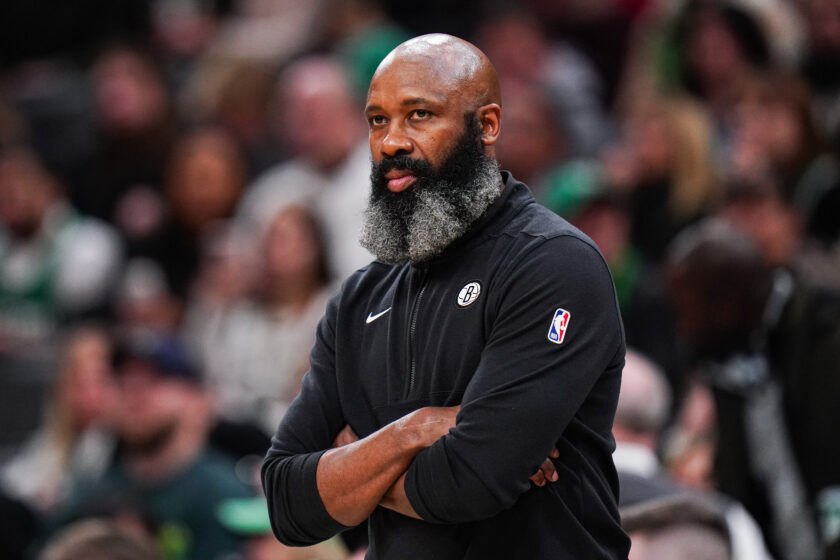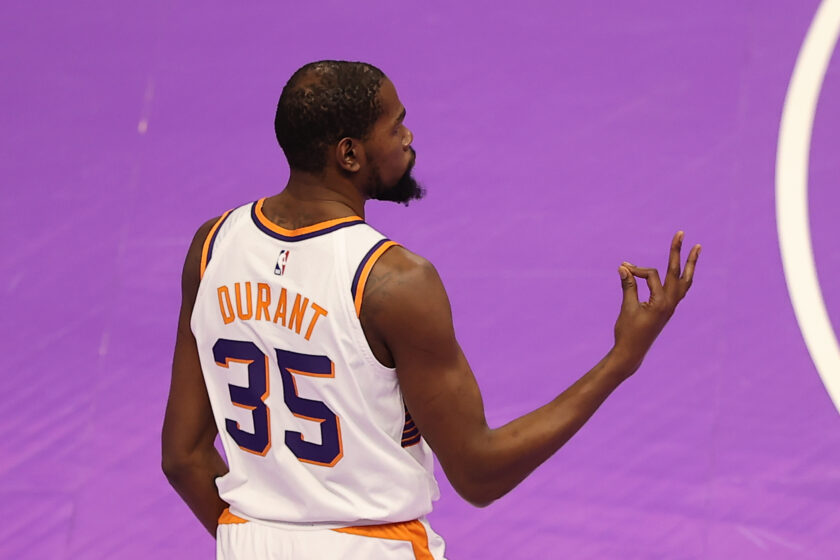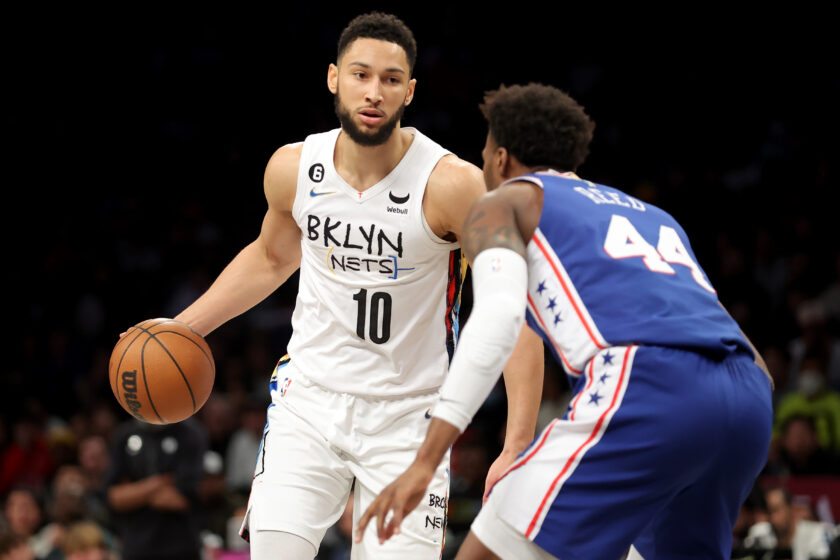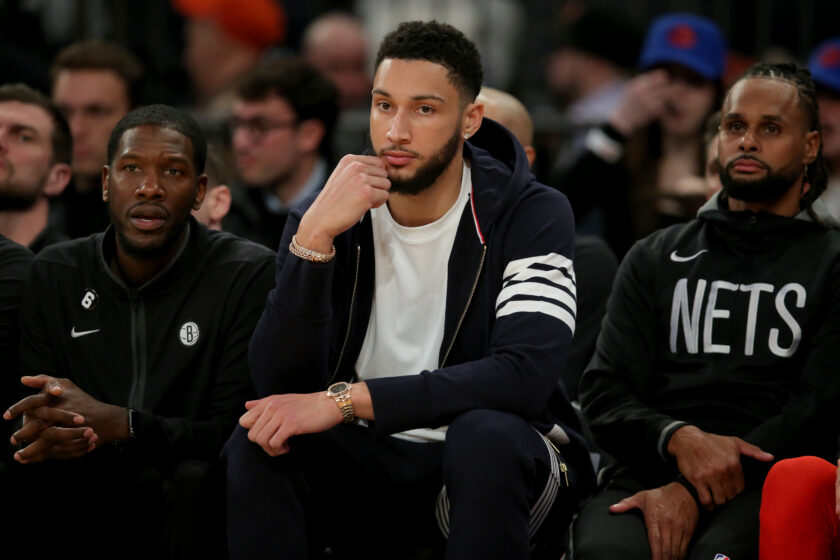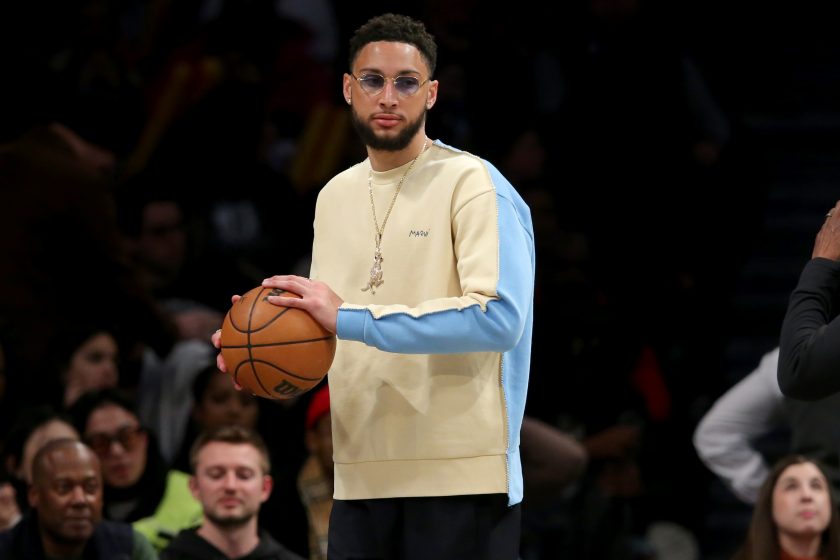Brooklyn Nets: Jabari Parker trade is a necessity this offseason
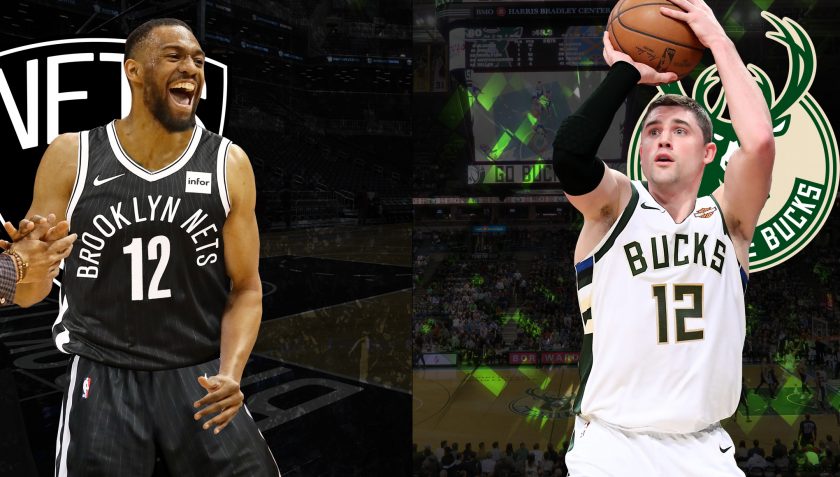
The Brooklyn Nets have been patiently amassing their army of rebuild pieces. This summer, they finally have the right tools at the right time to trade for a true star: Jabari Parker.
The Brooklyn Nets have spent the last few years doing a couple of things. One of them was being really, really bad in an awful rebuilding situation. Another was amassing tons of young assets from scratch and giving them minutes to grow into their potential.
This offseason provides a unique chance for Brooklyn to aggressively seek out a trade and snatch a number two overall pick with All-Star potential at a fraction of his perceived price from just last summer. This player is Jabari Parker, the high-flying forward from the Milwaukee Bucks.
Jabari could be the guy that puts Brooklyn back on the map. In return for Jabari’s All-Star potential, Milwaukee can receive complementary pieces that make more sense for their team than Parker does.
[sc name=”Brooklyn Title” text=”Why should Brooklyn aim for Jabari Parker?” ]First things first, why should the Nets go out of their way to advance their rebuild right now and trade for Jabari Parker? There are many reasons. For starters, he fits exactly into Brooklyn’s extended timeline.
Jabari just turned 23-years-old, even though he finished his fourth NBA season only a few weeks ago. Given he looks reasonably recovered from his second ACL tear that he suffered in the 2016-2017 season, there is optimism he can be just about whole after another full offseason to train and grow. While Parker was lucky to be part of a playoff team two times already, he shouldn’t reach his prime for another three or four years.
This type of progression fits what Brooklyn represents. Along with that thought is the fact that Jabari would immediately be the face of the franchise moving forward. Nothing would get butts in seats more than getting a top pick talent to watch. It would certainly beat watching anyone else on the current roster. Brooklyn hasn’t had an All-Star since 2014. No one has even been close by any means. Trading for Jabari could signal the shift towards activating what the rebuild was all about.
But this doesn’t mean the Nets need to cash in all their chips. Parker will not be nearly as expensive as he was one to two years ago. Before his ACL tear, Jabari was anticipated to eventually require a maximum extension due to his potential. In September of 2017, during his recovery from the ACL tear, Parker reportedly asked for a max contract extension from Milwaukee. The Bucks were extremely wary of offering this under the current knowledge of his injuries and defensive woes, and this was the right call.
In October of 2017, Milwaukee offered him a three-year, $54 million extension, which Parker didn’t agree to. Parker is entering restricted free agency, which means the Bucks will have the right to match any deal offered to Parker. Restricted free agency is also team-friendly for this reason.
If the Bucks look to trade Parker, they will be able to offer or match any salary, and then trade him to Brooklyn for pieces. Given that very, very few teams both could and would sign him, Brooklyn has a very good chance to get him at lower than market value. That’s why this offseason is a great time to sign long-term free agents.
Parker would most likely sign to something along the lines of $20 million a year for four years. There is almost no chance he is offered a maximum contract by anyone. If this happened, there would probably be some major buyer’s remorse down the line. The Nets have the space to offer good money and long-term security, two needs Jabari is itching to secure.
Brooklyn needs a player like Jabari. On the offensive end, he is polished as a scorer inside the arc and has been working on extending his range, which ended up materializing this year in a low sample size. He shot 31-of-81 (38.2 percent) in 31 games in 2017-2018. Parker’s athleticism is off the charts, making highlight posters look easy. Attacking the basket with force is his biggest offensive weapon. He can score inside the paint well, but not great. Given his size and skill, it should improve over the coming years. His mid-range scoring capabilities are great since he can pull up reliably from most areas inside the arc.
Jabari has so much room to grow. All the potential is there waiting for him to put in maximum effort for a full, healthy season. If he can improve his three-point shot just a bit more, his finishing inside just a bit more, his willingness to facilitate a bit more, his defensive effort—well, quite a bit—that’s the making of an annual All-Star no question. And he’s only 23. There is so much time left to improve heavily on his game.
He’s had flashes of greatness with major injury problems. If he can string together three, four, or five healthy seasons together, he will definitely become one of the better players in the league. Coach Kenny Atkinson and his staff are fantastic at player development, which may unlock his ceiling.
There is a clear need for a player like this in Brooklyn, especially given their lack of depth at the position. But why would Milwaukee part with Parker if his ceiling is still high?
[sc name=”Brooklyn Title” text=”Why would Milwaukee move on from Parker?” ]The simple answer is that Parker is risky to gamble on. He has a long injury history, and his upside is tantalizing enough to make teams, including Milwaukee, overlook this risk. He may not be a max player anymore, but he is definitely worthy of anywhere from $16-22 million per year on a long contract just for his potential alone.
Milwaukee has little wiggle room on the books. If Parker stays in Milwaukee for a deal that size, they will be sacrificing a good portion of their future flexibility for many years to come in an asset that could flop. Giannis Antetokounmpo makes over $24 million next year. Khris Middleton makes $13 million. Eric Bledsoe makes $15 million. John Henson makes $11 million. Matthew Dellavedova makes $9 million. Thon Maker and Malcolm Brogdon need new contracts very soon. Even in 2020, the Bucks payroll is just a hair under $80 million if nothing changes.
Moving on from Parker also makes sense for basketball in Milwaukee. Parker doesn’t add much to the roster that Milwaukee needs. Superstar Giannis plays the same position. They are both ball-dominant wing penetrators that don’t have the best jumper. It would be hard to maximize both of their talents on the same team. They might as well move on, gain payroll flexibility, and sign or trade for another piece that helps the team more in other areas, such as point guard.
How can the Bucks gain more cap space and wiggle room to construct a better roster? The Brooklyn Nets can take John Henson’s salary off their hands. This offers a big advantage for Milwaukee moving forward. Without this trade, keeping Henson and Parker on a new contract, their payroll would be well over $120 million for a roster that just lost in the first round. With the trade, they lose Henson’s salary and Parker’s extension, getting them under the soft cap.
[sc name=”Brooklyn Title” text=”What should Brooklyn send to Milwaukee?” ]Now that they would have more financial space, they can take on a couple sound players from Brooklyn with skills the Bucks desperately need. Brooklyn should move Joe Harris, Spencer Dinwiddie, and a future second rounder to the Bucks in order to complete the deal.
Harris rounds out the Bucks wing rotation very well. His three-point shooting is so sweet, and putting him next to Giannis, Middleton, and Bledsoe could supercharge the offense. Tony Snell plays this role as well, but his offense has really waxed and waned during his stint with the Bucks. Harris gives them a window to more complete lineups that work for both modern offenses and the Bucks specifically.
I detailed a trade piece specifically about Joe Harris here, where it seemed that his next contract would be somewhere in the range of five to eight million dollars. That’s a cheap salary for a small forward that fits everything Milwaukee needs.
Dinwiddie is perfect as well if moved to the Bucks. Bledsoe hasn’t been amazing this season with Milwaukee. Brogdon also has underperformed given he won Rookie of the Year in 2017 and might be better suited to play shooting guard. Dinwiddie is a candidate for Most Improved Player this season and offers ball movement along with high assist, low turnover backup point guard play. His style could fit with lower usage lineups that feature Harris, Snell, Brogdon, and Thon Maker.
Dinwiddie also makes less than two million in 2019.
The second round pick acts as a throw-in which gives Milwaukee a little stronger bargaining chip if they decide to make another, possibly bigger move.
[sc name=”Brooklyn Title” text=”Long-Term Impact” ]Does this Bucks team win the Finals next year? No. But they become better suited to win for years to come for very cheap by upgrading their biggest needs. It also gives them desperately needed space to make more moves. They add maybe $10 million to the payroll, but shed what could easily end up being $30 million if they don’t make a move. That potential extra $20 million could be enough for a significant signing or more trades.
For Brooklyn, they officially get a whole lot closer to that bright light at the end of the tunnel. Jabari Parker becomes the current face of the future. Over the next couple years when the Nets’ less impactful contracts come off the books, they can become a nice free agent destination for players that want to join a great, young talent. For Milwaukee, they round out a smarter roster and get rid of dead weight money.
The move helps both teams both now and in the future. If the Bucks decide to move on from Parker, this deal offers great compensation in a couple of key ways. What is most impressive about this deal for Brooklyn is that Joe Harris and Spencer Dinwiddie, who were unwanted just a couple years ago, have the chance to turn into Jabari Parker.
[sc name=”Nets Link Next” link=”https://elitesportsny.com/2018/05/24/brooklyn-nets-proposing-a-trade-for-otto-porter-jr/” text=”Otto Porter Jr. Is A Realistic Option In Brooklyn” ] [sc name=”Nets Footer”]
